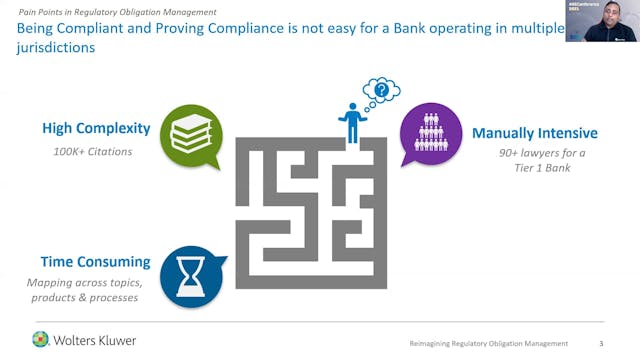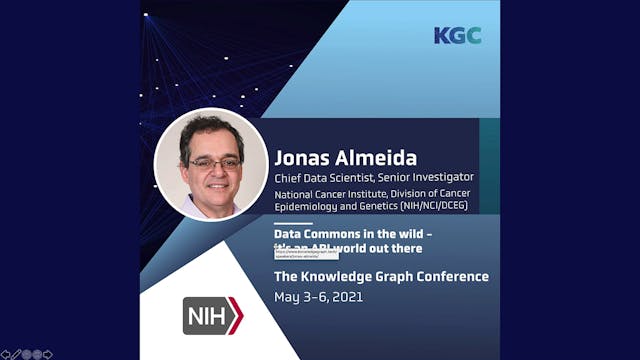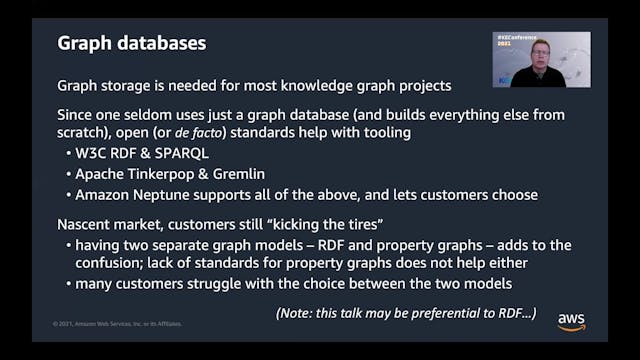Jan Hidders | A Report From The Property Graph Schema Working Group
KGC 2021
•
15m
The Property Graph Schema Working Group (PGSWG) is an informal working group that was set up in 2018 under the umbrella of LDBC, the Linked Data Benchmark Council, to support the formal working group that works on the SQL/PGQ and GQL, the upcoming ISO/IEC standards for managing property graphs. The PGSWG overlaps partially with the formal working group and consists of around 60 members from academia as well as industry. The academic members come from different research domains, including data storage, data management, query languages, query optimization, programming languages, data modeling and Semantic Web. The industrial partners come from companies such as TigerGraph, Neo4j, Amazon, FactGem, Google, Redis, Ant Group, Memgraph and Uber. The goal of PGSWG is to discuss the Property Graph data model and the schema language that will describe instances of this data model, both in the context of the SQL extension and outside of it. Discussions in the group cover topics such as the basic Property Graph data model, property types, subtyping, null values, key constraints and cardinality constraints. In this presentation we will give a brief overview of the history of this working group, the current status of its discussions and where they might be going in the near future.
Jan Hidders is a member of the Property Graph Schema Working Group or the PGSWG. As a member here at KGC 2021, Jan is going to be discussing how PGSWG started, what it is doing, what it has been doing, and what it will be doing in the near future through a report from the Property Graph Schema Working Group. #knowledgegraphs #knowledgegraphconference #knowledgegraphschema
Up Next in KGC 2021
-
Abhishek Mittal | Re-Imagining Regula...
Content Enrichment: Development and deployment of a 5-stage taxonomy. Applying the taxonomy to tag regulations and classify them for improved discovery & work assignment.
Smart Authoring: Leveraging advanced NLP and ML techniques to learn from the past content authoring for identification of ... -
Jonas Almeida | Data Commons In The W...
The increasing reliance on distributed epidemiological data sources for time sensitive analysis defines an emergent computational commons space: API ecosystems supporting epidemiology data commons. This space has been forced to evolve significantly to meet the real-time requirements of COVID-19 i...
-
Ora Lassila | A Knowledge Graph is Mo...
Customer adoption of graph databases is growing rapidly and has attracted many vendors and products. Graphs, as an abstraction, are a simple and intuitive way to model information about the world. Despite this, the learning curve for building a graph-based application remains steep and daunting, ...



